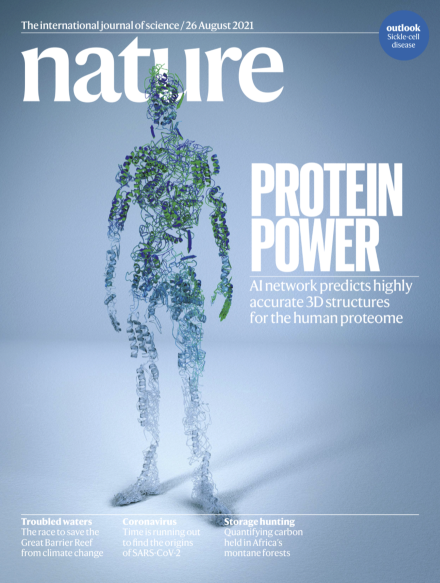Volume 596 Issue 7873, 26 August 2021
This Week
-
Editorial
-
-
World View
-
Research Highlights
News in Focus
-
News Round-Up
-
News
-
Features
Opinion
-
Comment
-
Correspondence
Work
-
Column
-
Technology Feature
-
Where I Work
Research
-
News & Views
-
Perspective
-
Articles
-
Matters Arising

